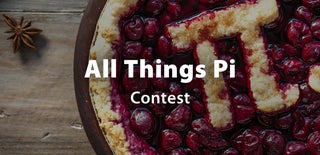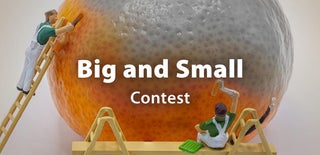Introduction: Star Wars Monopoly (GlowForge)
May the 4th be with you!
Having recently invested in a GlowForge laser cutter, Almost all of my initial projects and pieces coming off the Glowforge were gifts for others. I cut some things on wood, engraved from slate, and even made an multi-level topographic map. However, I wanted to do something for myself. There were a ton of users on the GlowForge forums making Settlers of Catan boards, which is awesome. I decided to try something different, and create my own custom Monopoly board, but better yet, an original Star Wars Trilogy Monopoly board. This game will go into my personal collection. It is not for sale.
Having recently played Monopoly for the first time in a long time, I thought that I could create pretty much everything needed for a custom Monopoly board with my GlowForge. it ended up being a much bigger project than just creating a custom board, as I also made the tokens, property cards, dice, money, community chest, chance cards, bankers tray, and custom box. My version of the game is based loosely off the Parker Brothers original trilogy Star Wars Monopoly edition, with many variations.
"I am one with the Force, and the Force is with me..."
*** I used a GlowForge laser cutter using .SVG files from Adobe Illustrator. The files I share in this thread are Illustrator .AI files, which would need to be re-saved as .SVG files to work on a GlowForge.
The main materials I used:
- 2 x 1/4" x 12" x 20" Cherry Proofgrade Plywood (Game board)
- 2 x 1/8" x 12" x 20" Proofgrade Draftboard (Property Cards)
- Different Color Cardstock paper for the Money, chance, and community chest cards.
- Scrap proofgrade plywood for tokens, houses, and hotels.
- Acrylic paint for property cards and board spaces.
- Blank Dice
Step 1: Board Design
Doing a quick google search brought up a number of resources for helping getting started on a personalized version of Monopoly.
- Use the Hasbro My Monopoly website to create a custom board
- Plenty of Etsy sellers with custom boards
- Google it.
I found a few sites with templates as well.
I ended up redrawing the entire board, as I didn't find anything that was precise enough to use on my project. Since I knew that I was going to use the GlowForge to score the board grid on the wood, I wanted to ensure that all the lines were joined properly and the exact length. The GlowForge bed is limited to wood that is currently 12" x 20". Even though I have the pro model with pass through slot, I wanted a board the would fold up, so ended up making this in 2 halves.
Knowing that the GlowForge would do a combination of cutting, engraving, and scoring, I kept each of these elements on their own layer in Illustrator, and used different colors for fill and stroke so the GlowForge webapp separates each of these into their own configurable instance.
I have attached the board grid Illustrator files below. Feel free to use them as you see fit. None of the graphics or artwork is included in those files, just the layout and grid for you to use in your own Monopoly board.***
*** Since this is a Star Wars monopoly board, I used clip art and images I found through a google image search. I do not own the copyright to these images, and am using them for my own personal use. This instructable is here to show you my process in making this Monopoly board using a GlowForge, but cannot directly share any of the individual trademarked or images that were created by other artists. Add images to a new layer in Illustrator for whatever theme Monopoly board you are making.
Step 2: Cutting / Scoring / Engraving the Board!
Each half of the board took almost 3 hours each to run its course through the GlowForge. I tried a couple if different types of plywood including Maple and Cherry. I also tried inverting the middle image to save time on the engrave, but ended up using the non-inverted image for the final board. The time lapse video above is 2 hours an 57 minutes condensed down to just over a minute for the top half of the game board. The masking tape prevents excessive burn and creates clean lines when the process is complete.
Step 3: Property Cards
I designed the property cards to look similar to the original design, but moved the title outside of the color box. I used the GlowForge to score the lettering into the tiles using the Kabel Monopoly font, and cut each tile out. I also scored the mortgage information into each tile individually on the back. The tiles were painted with acrylic paint in a similar color to the original game, which will match the spaces on the game board.. The tiles were cut from medium draft board, and will be spray painted with a sealant at some point. The masking tape that comes on proofgrade draftboard from GlowForge acted as a good mask for painting the property colors. I peeled off the rectangle that was scored in each card, painted the box, and then removed the rest of the masking after the paint dried.
Instead of having houses and hotels, or cities and spaceports, my properties each have custom "houses" and "Hotels." For example, if you land on Dabobah, you get huts for houses, and the Dark side cave for the hotel. If you land on the Death Star, your houses are Storm Troopers, and you hotel is the Tractor beam. On Jabba's Sail barge, it has servant droids, and the Sarlacc Pit. You get the jist. Prices for these custom houses and hotels are the same as the original game.
Attachments
Step 4: $15,140 Galactic Credits! (Laser Cut Monopoly Money)
I used a monopoly money template that I found on Google search., and added some Star Wars flair by making each denomination include an image from the Empire, with laser cut Galactic Empire logo cut out of each bill. I ended up printing the design of the Monopoly money on thicker cardstock paper, versus the thin paper the original money comes on. I did this because I had access to free colored paper, so it was an easy choice. I used a standard black and white laser printer to print 10 bills on each piece of paper, and then used the template to cut each bill the same size on the GlowForge.
I used Adobe Photoshop to create the layers for the bills with 10 bills on each page. I then used Illustrator to create the outlines that will be cut using the GlowForge, and saved as an .SVG format.
The money comes in 20, $500 bills, 20, $100 bills, 30, $50 bills, 50, $20 bills, 40, $10 bills, 40, $5 bills, and 40, $1 bills.
Step 5: Tokens / Houses / Hotels
Tokens:
I cut the tokens out of scrap cherry plywood, using the GlowForge or course, and used a 2 piece design for the pieces. Each character has a 1/8" tab at the bottom of each piece, and a .75" base to with a .115" square cut out of the middle. It creates a snug fit, but the pieces could be taken apart if needed. To create each character, I use Adobe illustrator to create an outline using the offset path tool to give the GlowForge some room to do the engraving. The cut path was a different layer than the engrave path. Simple, but fun and unique tokens for the Monopoly game!
Houses / Hotels:
I didn't really have any clever idea for the houses and hotels, and went with a generic tile for each. Since my properties could be anything from a hut, to a spaceship, to a planet, I thought going with something simple was warranted for this custom game. I cut the 32 houses out of clear 1/8" acrylic and the hotels out of black 1/8" acrylic.
Step 6: Chance & Community Chest
I changed the Chance spaces on the Board to read Galactic Empire, and the Community Chest spaces to say Rebel Alliance. I created custom cards for both of these, and printed them out on cardstock. The plan is to have them professionally printed by Moo.com, which has square business cards that can have a different design on a=each card. I'll wait for a sale or discount code to come my way, but until then, the printed versions will work just fine. I used the GlowForge to cut the cards out with rounded corners.
*** I was educated by someone on the Glowforge forum that I misspelled Wookiee on these cards. Thanks for the heads up, as I should have known that. I haven’t finalized the cards that i’m going to have printed professionally, so the good news is that this is an easy fix.
Step 7: Bankers Tray
Using Illustrator, I created a bankers tray to cut on the GlowForge in 1/8" Proofgrade Cherry. This was also my first attempt at a living hinge, as I added this to the top piece on each side to create a curve. Bills fit nicely, and this is a nice addition to the entire set. I have included the SVG file if you want to cut your own and customize the template.
Attachments
Step 8: Dice
To engrave the dice, I created a jig out of cardboard to use in the GlowForge. It's pretty simple, as I measured the dice, and drew 2 square boxes with a width of 1.765". I use the GlowForge to cut these 2 squares out of the cardboard, which is held down to the crumb tray using magnets and tape so it doesn't move. Remove the cardboard squares that were cut out, leaving the rest of the cardboard in there as a template, and insert the dice into the GlowForge in the 2 new empty slots.
Step 9: Admiration Hour, Show and Tell.
Haven't been able to get a proper game board box, so in the meantime, I used a Uline packaging box and engraved it. Also engraved the bottom of the board with my contact info and limited edition status. I will eventually make a proper wood box for this, but for now, everything is complete.
Step 10: Change Up the Design: Make Another Board!
Since I had all of the design elements created, I did make a second board for a summer camp fundraiser to send kids who normally could not afford to go to camp. I am raffling off this board to the camp staff alumni. The only difference in this board is that I used cherry plywood from Owyn's, which gave a more solid result. The Star Wars board has a bit of warp to it, whereas the Owyn's wood does not. This is my last monopoly board for a while.
Step 11: Box!
Finally got around to making a proper box for the monopoly board. Wood from Owyn’s along with draft board for the dividers. The problem with my Glowforge laser cutter is that the bed width has a maximum width of ~19", or the same size as the board game itself. Glowforge hasn't released the software upgrade for the pass though slot yet to make accurate cuts using the pass through slot. So, I decided to improvise and use a puzzle approach with multiple woods. Had to use more sheets of plywood, but aI am happy with the result.














